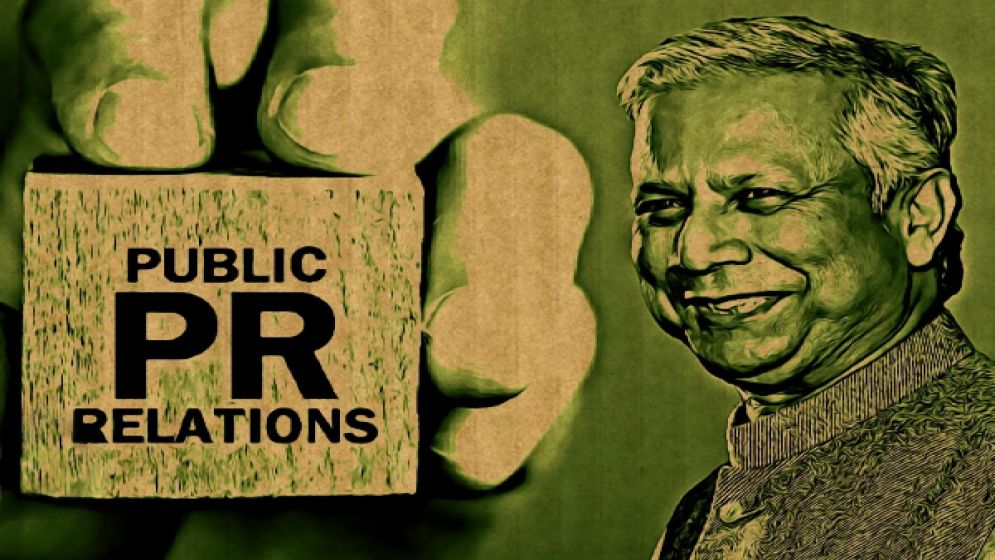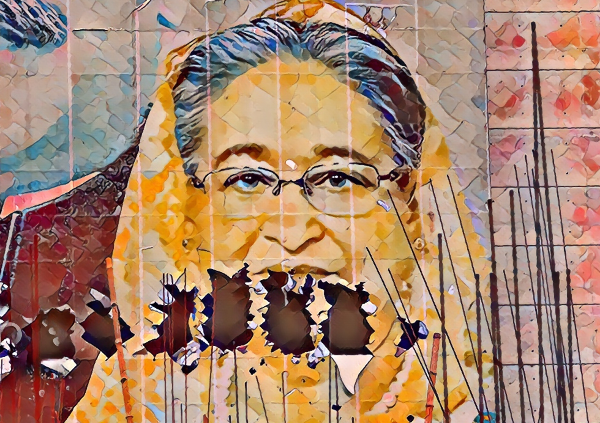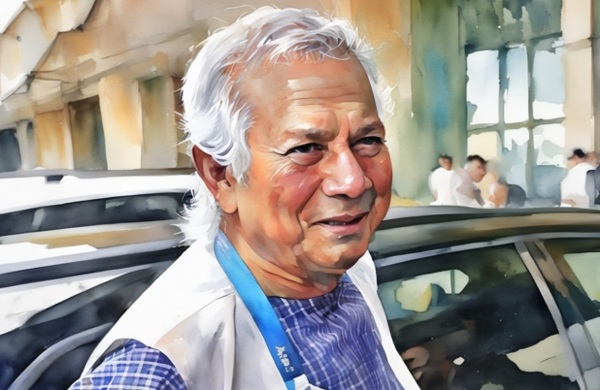The subtle, elegant PR of Yunus’s administration in its first month

The first month of Dr Muhammad Yunus's administration, especially its public relations efforts or those that seem designed to make a PR impact, reminds me of the "quiet luxury" style featured in HBO's "Succession."
This series, which delves into the lives and conflicts of a billionaire media family, has not only captivated viewers with its gripping storyline and exceptional acting but also with its distinct fashion sense, often referred to as "quiet luxury."
Simply put, quiet luxury is a fashion philosophy that signifies true status and refined taste, avoiding flashy branding and logos in favor of flawless craftsmanship, high-quality materials, and a subtle elegance that makes a strong impression without being overt.
So, why compare Yunus's administration's PR style to quiet luxury?
First, a quick disclaimer: no matter how effectively a government performs, its achievements can remain unnoticed without proper public relations.
Government PR acts as a crucial intermediary, managing communication between the government, its representatives, and organizations on one side, and citizens, stakeholders, and the media on the other.
Its role is multifaceted, encompassing everything from managing information exchange and building public trust to promoting transparency, handling crises, and advocating for policies.
However, if PR is executed in a manner that feels intrusive and overly aggressive to its audience, it often backfires. In today's world, people generally dislike having their personal space invaded by intrusive PR efforts.

Hasina's Overt and Flashy PR
Over the past 15 years of Sheikh Hasina’s rule, we’ve seen numerous examples of such invasive PR tactics used to promote her, her father, and her administration in a loud and exaggerated manner.
I was particularly taken aback during a Biman flight from Bangkok to Dhaka in 2023, when I was compelled to watch Sheikh Mujibur Rahman's “historic” March 7 speech on the in-flight entertainment system, as if it were a mandatory safety briefing.
Even in venues like the Novo Theatre, which was meant to feature documentaries about space, stars, and planetary bodies, documentaries about Sheikh Mujib or the Padma Bridge were shown instead.
Speaking of the Padma Bridge, I recall seeing a statue of the bridge in at least two locations in Dhaka— a statue of a "bridge"! Where else would you find something like that?
On the positive side, there were some commendable PR efforts from Hasina’s administration.
For example, the release of footage of Hasina cooking Ilish Polau, playing badminton with her grandchildren, working in the Gonobhaban garden, or even fixing her daughter Saima Wazed Putul’s hair were well-received.
These moments led many to perceive her as a “decent” individual, sparking a wave of praise on social media filled with detailed accounts and exaggerations.
In an autocracy, such displays likely served as a form of comfort, allowing people to believe that someone with such ordinary and relatable traits might not be a “monster” after all.

Why is Yunus's PR different?
However, Yunus's situation is different. He is arguably the most esteemed and recognized global figure from Bangladesh, holding accolades such as the Nobel Prize and the U.S. Congressional Medal.
Although he was viewed as a distant figure by many in Bangladesh, largely due to his silence on key issues over the past decade, no one has likely faced as much animosity from Hasina as Yunus has, aside from Begum Khaleda Zia.
Despite a brief and unsuccessful attempt to form a political party, Yunus has generally shown no political ambition.
Even his involvement in the interim government was not his own desire but rather a request from the students who led the mass uprising. Therefore, it's not surprising that he had no need or intention to engage in overt PR stunts.
But action speaks louder than words, and any PR attempts. And it even makes bigger noises if done in silence, without showing any garrulous or grotesque PR stunts.
The release of 57 Bangladeshi expatriates in the UAE, which reportedly followed Dr. Yunus's request to UAE President Sheikh Mohammed bin Zayed Al Nahyan, has been the most significant PR achievement for Yunus’s administration in its first month.
This action conveyed subtle yet powerful messages about the influence a respected global figure like Yunus can wield.
It also resonated strongly with the more than 10 million Bangladeshis in the diaspora, many of whom contribute billions in remittances, a crucial pillar of the economy alongside ready-made garments.
The latest and most notable PR move from Yunus's government is its firm protest to Indian authorities regarding the border killing of a minority girl.
This was complemented by an interview with the Indian state agency PTI, where Yunus issued a strong statement demanding a genuine resolution to the Teesta issue.

Why do Yunus’s PR's win people’s
minds?
Hasina and her Awami League party’s close ties with successive Indian governments have often been perceived by Bangladeshis as a “more give, less take” relationship.
For Hasina, this alignment was a strategic way to maintain her grip on power, given the support she received from New Delhi.
However, this relationship prevented her administration from sending strong messages to India, leaving many Bangladeshis feeling subordinate.
In contrast, Yunus has used his first month to shift this dynamic with his bold stance, sending a clear message to India, the Bangladeshi people, and the international community that he is serious about reclaiming the respect Bangladeshis once had.
This approach has undoubtedly made a significant impact in terms of PR for Yunus’s government.
Yunus’s recent decision to bring only seven people to the UNGA in New York was another effective PR move, especially in contrast to the previous practice of Hasina taking a large entourage, including film stars, at public expense.
Smaller PR gestures from Yunus’s office, such as replacing plastic bottles with glass mugs and jars, were also well received. This was highlighted by a Facebook post from his press secretary, Shafiqul Alam, which helped the public appreciate these changes.
Shortly after Yunus assumed office, businesses rushed to publish advertisements featuring his photo and accolades.
In response, Yunus’s office issued a notice stating, “The use of the honorable chief advisor's image in advertisements or other forms of promotion in newspapers and various media is prohibited.”
This restriction on PR became a form of “quiet yet subtle” publicity, much like the "quiet luxury" associated with the cast of Succession.
—-

